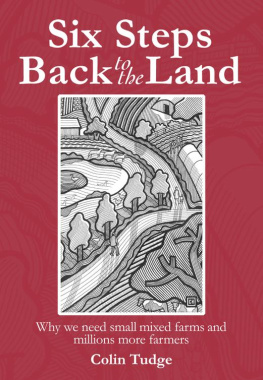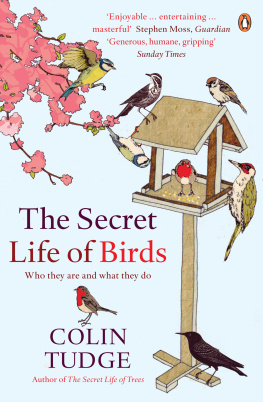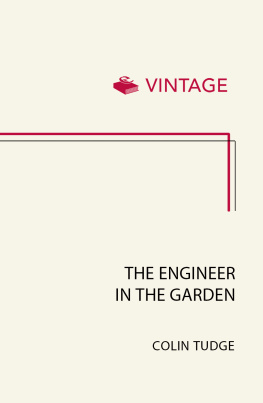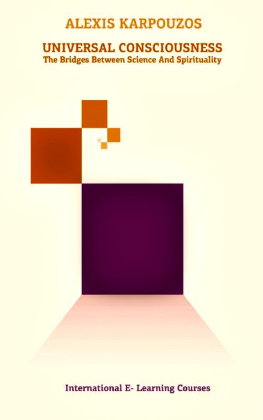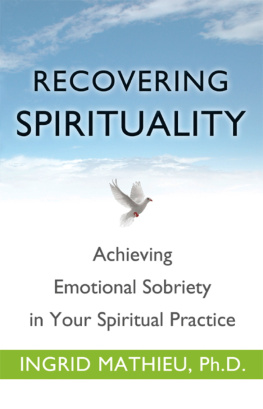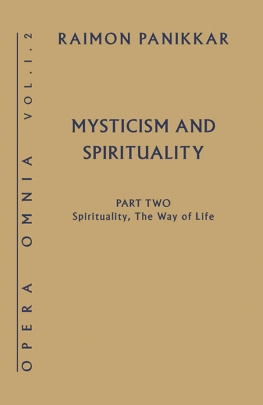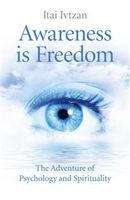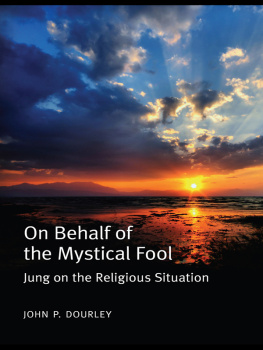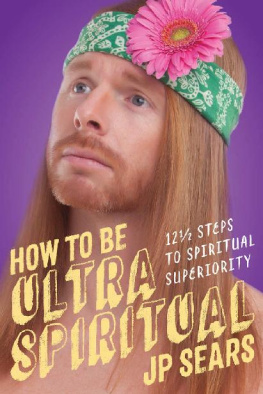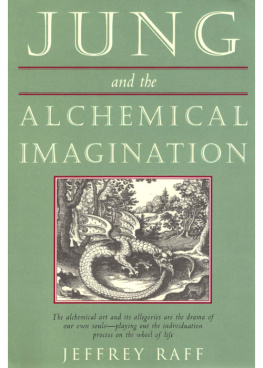The good news is that we can feed everyone, and can do that in healthy ways indefinitely into the future. But if we are to do this while minimising the disastrous impacts that accompany modern industrial farming, then well need to do things differently. With characteristic clarity Colin Tudge lays out why this is not primarily a technical issue but is more political and economic in nature.
Tony Juniper, former Executive Director of Friends of the Earth, author ofWhat Has Nature Ever Done for Us?
Colin Tudge offers a welcome perspective at a time when so much of the dialogue about food and farming is framed against a backdrop of fear; a fear that there wont be enough to feed an ever-increasing world population and a fear of the apocalyptic consequences of agricultures contribution towards climate change. The reality is that we already have the knowledge and resources needed, but they are being deployed within a system that is inherently wasteful, exploitative and characterised by inequality. Six Steps Back to the Land sets out a renaissance, a future shaped not by fear but by understanding.
John Turner farms 250 acres in Lincolnshire, and is a co-founder of the Pasture-Fed Livestock Association
As the world population edges up to the ten billion mark, the question of how people are going to be fed grows ever more urgent. Bigger units! More machinery! the politicians and the corporations say. Colin Tudge is one of the most persuasive, reasonable, hard hitting voices calling for an alternative. This book spells out the steps by which we might be able to get out from under the dominance of the Corporations and the big is best mentality, and restore a farming which will feed 10 billion without poisoning the landscape.
Tim Gorringe is Emeritus Professor of Theology, Exeter
In his wonderfully accessible style, Colin Tudge gathers his well-honed arguments about societys miss-directed development of agriculture. We could diminish the major problems of the past while sustaining a happier, healthier and more equitable future for agriculture and thus for society as a whole.
Professor Martin Wolfe, Wakelyns Agroforestry, Suffolk
To Bob Orskov, who first opened my eyes to the realities of agriculture
and to
Ruth, my wife, who turns bright ideas into action
Other books by Colin Tudge
(The most recent books are shown first.)
Why Genes are Not Selfish and People Are Nice
Good Food for Everyone Forever: A peoples takeover of the worlds food Supply
Consider the Birds: who they are and what they do
Feeding People is Easy
The Secret Life of Trees
So Shall We Reap: the Concept of Enlightened Agriculture
In Mendels Footnotes: Genes and Genetics from the 19th century to the 22nd
The Variety of Life: A Survey and a Celebration of All the Creatures That Have Ever Lived
Neanderthals, Bandits and Farmers
The Day Before Yesterday
The Engineer in the Garden: Genes and Genetics from the Idea of Heredity to the Creation of Life
Last Animals at the Zoo
Global Ecology
Food Crops for the Future
The Food Connection
Future Cook (Future Food in the US)
The Famine Business
Co-authorships
The Second Creation: Dolly and the Age of Biological Control
Home Farm
Contents
A huge number of people have contributed directly or indirectly to this book over at least four decades some of whom have disagreed vehemently with most of my ideas, but have helped to clear my own thoughts by doing so. The detractors spelled out the ideas that have brought world farming to its knees, and so helped to throw into sharper relief the ideas that really should be taken seriously.
I am far more grateful though, of course, to the many people who have contributed to the ideas in a positive way. First for me was Prof Bob Orskov, whom I met at the Rowett Research Institute in the early 1970s in my Farmers Weekly days, when the Rowett was directed by the great Sir Kenneth Blaxter. Bob, now at the James Hutton Institute, Aberdeen, first showed me how the husbandry of animals must be shaped by their physiology and psychology how the one must follow from the other. Bob also spends a significant slice of each year promoting peasant farming in what Mahatma Gandhi called the Third World (the PC expression developing world is at best a euphemism and is in many ways misleading) and is showing that the West has at least as much to learn from them as they from us. More recently I have been heavily influenced by Prof Martin Wolfe, plant pathologist turned arable farmer, who is a pioneer of agroforestry and organic husbandry at Wakelyns Farm in Suffolk. I regard them both as gurus (whether they like it or not).
In recent years, too, my discussions with archaeobotanist turned arable farmer-cum-baker-cum-thatcher John Letts have been tremendously instructive (to me). Others who have contributed enormously to my general feel for farming and growing include David Wilson, farm manager at Highgrove in Gloucestershire; Ed Hamer, smallholder on Dartmoor in Devon; David and Anneke Blake, smallholders at Cassington near Oxford; Roland Bonney, co-founder of FAI at Oxford (formerly called the Food Animal Initiative); Tim Waygood, mixed farmer at Church Farm in Hertfordshire; Denise and Christopher Walton at Peelham Farm in Berwickshire; and Catherine and Graham Vint at Hornton Grounds Farm in Oxfordshire. All are showing how mixed farms with very high standards of husbandry including animal welfare can work even in todays political and economic climate (and what might be achieved if conditions were favourable).
I have also been informed and encouraged by many people in various capacities who simply think along the same lines and have contributed to the various initiatives that Ruth (my wife) and I have cooked up over the years (see to the enormously important crafts and traditions of crofting; Jon Rae, Tim Crabtree and Rachel Fleming for enabling me to run a course at Schumacher College, Dartington, on Enlightened Agriculture in 2013 (though it was billed as Agroecology); Michel Pimbert, now executive director of The Centre for Agroecology, Water, and Resilience, for marvellous insights and lots of encouragement; Scott Donaldson of Creative Scotland; Tim Lang, Britains first professor of food policy at City University, London; Geoff Tansey, deep thinker on the politics of agriculture, who runs the Food Systems Academy with its excellent website; and friends and fellow travellers at the Pasture-Fed Livestock Association, including John Meadley, and farmers John Turner, John Crisp and Will Edwards, who honoured me and Ruth by electing us as lifetime members.
I am aware, too, of my ongoing debt to a variety of people over the years who have helped in many different ways to make our various initiatives work. They include Martin Stanley, who first helped us to set up the Campaign for Real Farming and has been unstintingly helpful since; Peter and Juliet Kindersley, who have supported the Oxford Real Farming Conference (ORFC) for most of its life; Sir Crispin Tickell, who set the tone of the ORFC by delivering its first-ever speech in 2010, and has chaired various sessions since; Patrick Holden, now of the Sustainable Food Trust, and Philip Lymbery of Compassion in World Farming, who have been good friends to the ORFC; to the many people who now help us to run the ORFC, and especially Harry Greenfield; and, from the ORFCs early days, Tom Curtis who set up LandShare, and Sam Henderson who now, with his wife Lucy and friends, runs Whippletree Farm in Devon.

